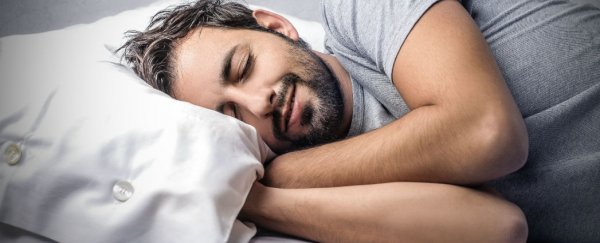Have you ever wondered why humans can't curl up in a ball as soon as winter starts and sleep through the cold and bitter months, just like bears and squirrels can? Well, scientists aren't exactly sure either, but recent research from Dutch scientist Robert Henning might bring us one step closer to induced hibernation.
Henning's focus is on anaesthesia rather than six months of deep sleep: being in a state of hibernation could make operations much safer, with slower heartbeats, less bleeding, and less of a dependence on oxygen. It could also lead to the development of new medications and treatments that can limit the effects of diseases such as Alzheimer's, or perhaps even unlock the secrets of surviving long-distance journeys through space.
Henning is working at the University Medical Centre Groningen (UMCG) in the Netherlands to try and figure out exactly why hibernating animals suffer almost no cell and organ damage when exposed to the extreme cold. In contrast, the bodies of non-hibernating animals are severely affected when the temperature starts to plummet.
Hydrogen sulphide (H2S) could be the key, Henning's team has found, reporting that there's a high concentration of it in hamster cells, and this seems to protect them from the cold. The researchers were able to identify the required compounds to simulate the production of H2S in rat cells and replicate the resistance to cooling.
What that means in practice is that scientists could potentially cool and preserve living cells without seriously damaging them, and eventually go on to protect non-hibernating animals at low temperatures. These temperatures typically lead to blood-clotting, organ damage, and other harmful effects - effects that animals that do hibernate seem to be able to shake off as soon as they wake up.
Hydrogen sulphide also looks like it plays a part in that magical recovery, according to the work done by Henning and his team, although further experiments are going to be required to produce real medicines and innovations from them. "Hibernation is great for general anaesthesia," Henning told Motherboard. "But as our knowledge grew, we kind of segued into [looking at] the whole issue of organ damage. We're looking at the effects of the compounds we developed, and they seem to protect the animals from organ damage."
And that can have implications for treatments for a whole range of problems, including type II diabetes: "The compound does nothing against the diabetes itself, but it stops or strongly slows the damage that would normally occur from occurring," says Henning. The same principles could apply to diseases like obesity and Alzheimer's.
There's still a lot of theorising and conjecture here that needs more evidence to back it up, but the early signs are certainly promising. The European Space Agency has asked Henning to be an advisor for its long space missions think tank, so one day you could be hibernating your way to Mars. Development and further research has now been taken over by commercial company Sulfateq.
